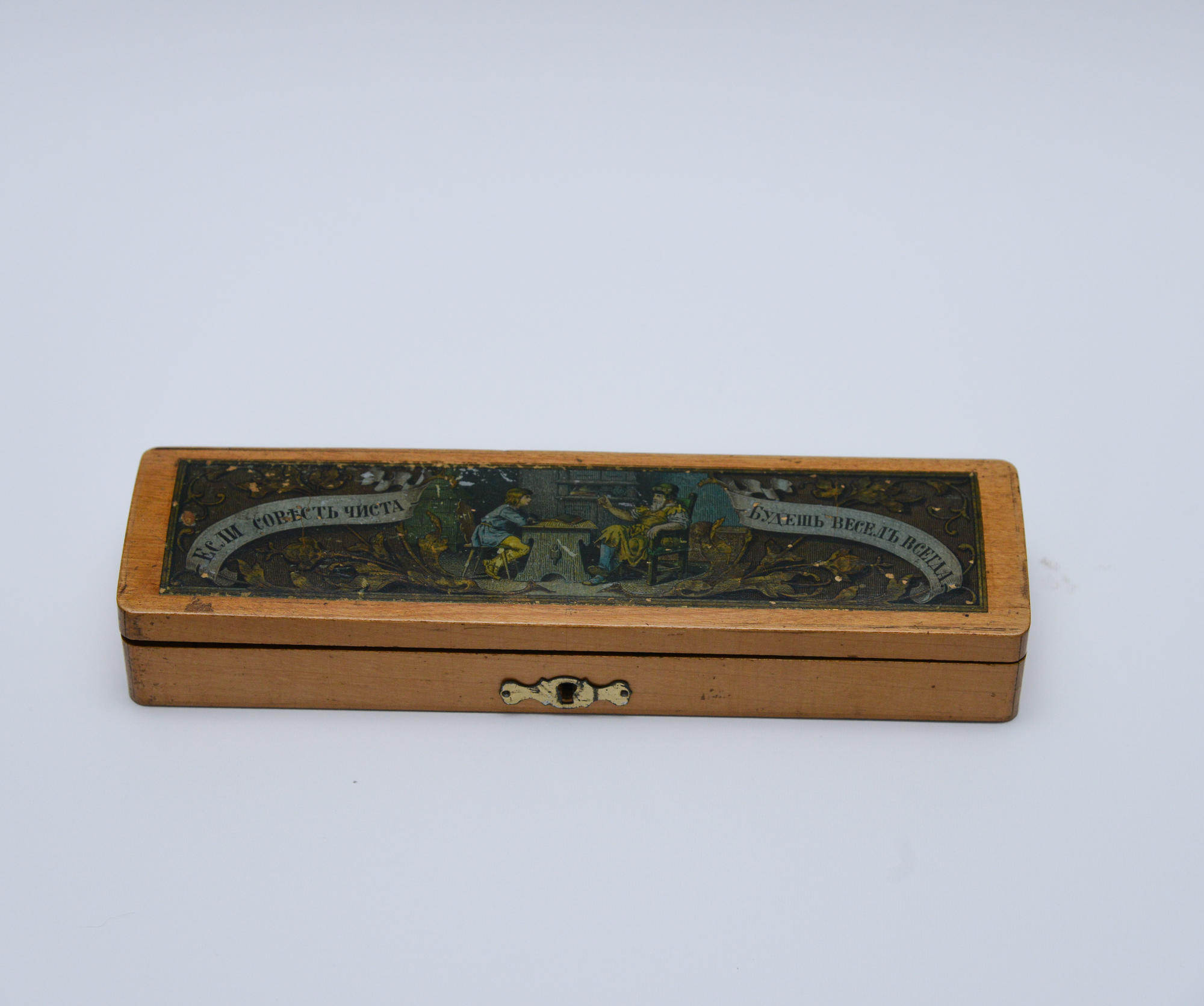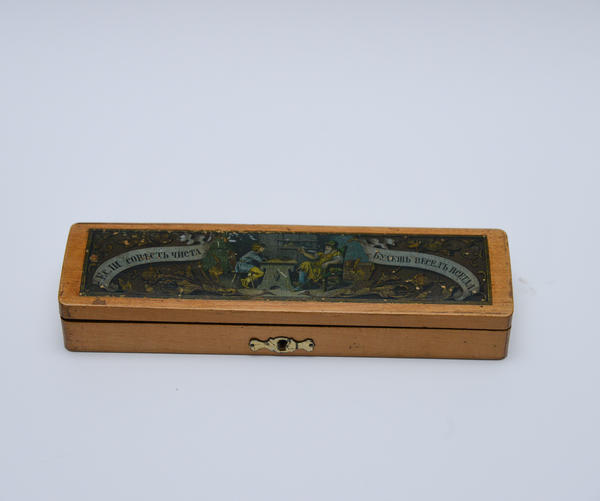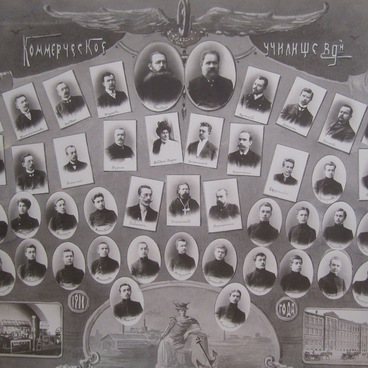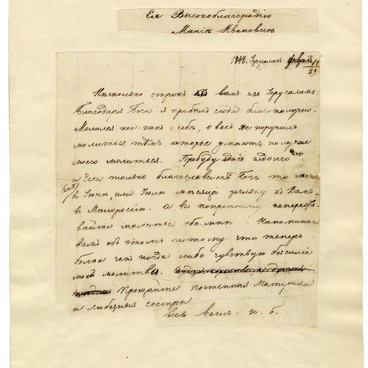This exhibit is a rectangular wooden case with a hinged lid. The lid is decorated with a colour decal copy of an etching. Decalcomania is a technique used to transfer colour images from paper to china, glass, wood and other surfaces. The image depicts a medieval tutor and his student sitting at a table. The inscription above them reads: ‘If your conscience is clear, you will always be merry.’ Such pencil cases were used by schoolchildren in the Russian Empire prior to the Russian Revolution in 1917. It is no coincidence that the pencil case is on display alongside various other school paraphernalia: globes, a protractor, a magnifying glass, a divider, inksticks, pencils and, of course, dip pens with spare metal nibs. All these articles may have been sold in the stationery shop run by Konstantin Fedin’s father Alexander.
The writer’s father had had a difficult life. The son of a serf, he started living with and earning his keep from a strange family at an early age. Alexander Fedin served in different shops, first as an errand boy and then as a shop assistant. Eventually, he became a co-owner, and then the full owner, of a stationery shop. The father told his son about his life in a letter dated 3 March 1920.
Particularly interesting is Alexander Fedin’s account of his meetings, as a senior assistant in Bestuzhev shop, with the writer Nikolay Chernyshevsky, who was a native of Saratov. In his later years, Chernyshevsky would frequent Fedin’s shop to buy a particular type of paper. Konstantin Fedin’s older sister, Shurochka, arranged samples of the available papers in an album. Shurochka had decorated the album with fancy decals, which was fashionable at times. The young Konstantin suggested giving away decals for anyone purchasing exercise books in the shop. The marketing trick proved a success: the shop was soon inundated with of schoolgirls, who were also clamouring to sneak a look at the young blue-eyed shop assistant who was working the counter during the summer holidays. It was his father’s dream that Konstantin would take over the family business, so he sent him to study at the Academy of Commerce in his native Saratov and then to the Commercial Academy in Kozlov, Tambov Region. After graduating from the Commercial Academy, Fedin continued his studies in the economics faculty at the Moscow Commerce Institute.
The writer’s father had had a difficult life. The son of a serf, he started living with and earning his keep from a strange family at an early age. Alexander Fedin served in different shops, first as an errand boy and then as a shop assistant. Eventually, he became a co-owner, and then the full owner, of a stationery shop. The father told his son about his life in a letter dated 3 March 1920.
Particularly interesting is Alexander Fedin’s account of his meetings, as a senior assistant in Bestuzhev shop, with the writer Nikolay Chernyshevsky, who was a native of Saratov. In his later years, Chernyshevsky would frequent Fedin’s shop to buy a particular type of paper. Konstantin Fedin’s older sister, Shurochka, arranged samples of the available papers in an album. Shurochka had decorated the album with fancy decals, which was fashionable at times. The young Konstantin suggested giving away decals for anyone purchasing exercise books in the shop. The marketing trick proved a success: the shop was soon inundated with of schoolgirls, who were also clamouring to sneak a look at the young blue-eyed shop assistant who was working the counter during the summer holidays. It was his father’s dream that Konstantin would take over the family business, so he sent him to study at the Academy of Commerce in his native Saratov and then to the Commercial Academy in Kozlov, Tambov Region. After graduating from the Commercial Academy, Fedin continued his studies in the economics faculty at the Moscow Commerce Institute.



